Utah Brain Injury Resources
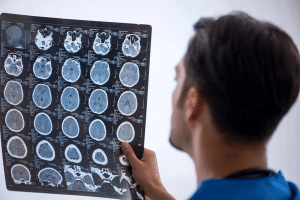
Brain injuries can change lives forever. They not only affect the injured person but also their families and communities. Understanding brain injuries and knowing where to find resources is crucial for recovery. That’s why we at Good Guys Injury Law have compiled a comprehensive guide to help Utah residents navigate this challenging terrain.
Traumatic brain injuries impact countless people every year. Our Utah traumatic brain injury lawyer is here to help you. We understand you might be looking for a brain injury support group to help you during the recovery process. You may need a nonprofit organization that helps TBI patients with their head injuries in Salt Lake City. We have compiled a list of resources for individuals and family members.
Learn more below, and give us a call to schedule a case consultation.
Table of Contents
Importance of Brain Injury Resources
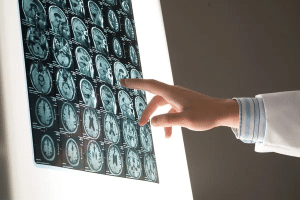
Brain injuries can be complex and varied. Some are blunt, while others might be penetrating brain injuries. Each person’s journey to recovery is unique. Having access to the right resources can make a world of difference. It ensures that individuals and their families receive the best care, support, and information needed.
Furthermore, the aftermath of a brain injury can be overwhelming. From medical bills to emotional turmoil, the challenges are numerous. Knowledgeable resources can provide guidance and relief.
Prevalence of Brain Injuries in Utah
Brain injuries are more common than most people realize. In Utah, they’re a significant public health concern. Every year, countless Utah residents face the dire consequences of brain injuries. Many of them result from car accidents, falls, sports, and other traumatic events. Utah reports that about 7 out of every 100,000 people are hospitalized for a TBI annually.
While many recover, some face lifelong challenges. Brain injuries can lead to disabilities, changing the course of a person’s life. This emphasizes the importance of prevention and the need for adequate brain injury resources. The community needs to be informed and proactive.
Types of Brain Injuries
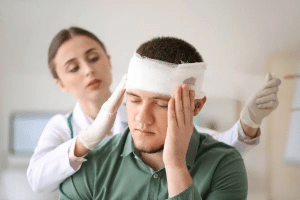
Brain injuries vary in nature and severity. They generally fall into two main categories. They include:
Traumatic Brain Injury (TBI)
TBI results from an external force to the head. Common causes include car crashes, falls, and sports injuries. TBIs can range from mild concussions to life-changing forms of brain damage.
Immediate medical attention is crucial for TBI. The long-term effects can be unpredictable. Some people might recover quickly, while others might need lifelong care. Early intervention and appropriate resources can improve outcomes.
Acquired Brain Injury (ABI)
ABIs are not caused by external forces. Instead, they arise from internal factors like strokes or illnesses. They can be just as devastating as TBIs.
ABIs require specialized care and resources. Early detection and treatment can make a difference in the recovery process. Awareness and understanding of ABIs are crucial for both patients and caregivers.
Government Agencies and Programs
The Utah government recognizes the importance of brain injury resources. Some of the top resources include:
Utah Brain Injury Council
This council is an advisory board to the state. They focus on improving services for brain injury survivors. Their work includes research, education, and outreach.
They collaborate with professionals and stakeholders. Their goal is to impact the lives of those affected by brain injuries positively. They provide valuable information and advocate for better policies.
Division of Services for People With Disabilities (DSPD)
DSPD offers services to those with severe disabilities. This includes many with brain injuries. They provide both immediate and long-term support.
Their services include therapy, housing, and employment assistance. DSPD aims to empower individuals to live fulfilling lives. They play a significant role in the support structure of Utah.
Nonprofit Organizations
Several nonprofit organizations dedicate their efforts to brain injuries.
Brain Injury Alliance of Utah
This brain injury association supports survivors and their families. They provide education, outreach, and advocacy. Their mission is to improve the quality of life for those impacted by brain injuries.
The Brain Injury Alliance hosts events, workshops, and support groups. Through their efforts, they build a strong community of support. They’re a beacon of hope for many in Utah.
Utah Valley Brain Injury and Stroke Support Group
This group offers resources, support, and education. They focus on both prevention and recovery. Their dedication to the brain injury community is commendable.
They organize awareness campaigns and provide direct assistance. Their holistic approach ensures that survivors and families get the help they need. They’re a pivotal part of Utah’s support system.
Rehabilitation Centers and Hospitals
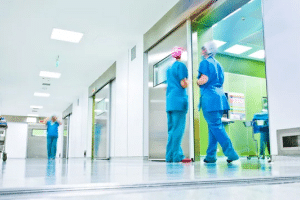
Seeing a specialist is the first step in the recovery process. Utah boasts several top-notch facilities for brain injury care. These centers provide specialized treatments and therapies.
Utah’s rehabilitation centers and hospitals are equipped with modern technology. Their staff includes experts in brain injury care. They work collaboratively to ensure the best outcomes for patients.
Supportive environments foster healing. Many brain injury survivors find renewed hope with the right resources and support. Their journeys to recovery are testaments to resilience and the power of community.
Support Groups
Support groups are safe spaces for sharing and healing. They offer emotional support and practical advice. Many brain injury survivors find solace in these groups.
Participating in support groups can be therapeutic. They provide a sense of community. By sharing experiences, survivors and families can find understanding and hope.
Educational Resources
- Brain Injury Awareness and Education Initiatives: Utah boasts numerous programs dedicated to raising awareness about brain injuries. These initiatives actively educate the public about the risks and consequences, emphasizing prevention methods and the importance of early intervention. By increasing public knowledge, Utah aims to decrease the incidence of brain injuries. Informed communities are more equipped to prevent these injuries and support affected individuals.
- Online Resources and Websites: The digital age has ushered in a wealth of information right at our fingertips. The internet is brimming with reputable websites that disseminate detailed insights about brain injuries, potential treatment options, and coping strategies for affected individuals and their families. Utilizing these online resources can provide up-to-date information and connect individuals with communities facing similar challenges.
- Printed Materials and Brochures: Tangible resources like printed materials and brochures are incredibly valuable. They offer concise, easily digestible information on brain injuries, their effects, and resources available for support. As they can be shared hand-to-hand, these materials are instrumental in grassroots efforts to spread awareness and knowledge within local communities, schools, and medical facilities.
Medical Facilities and Rehabilitation Centers
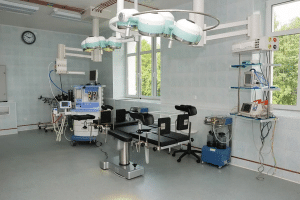
- Hospitals Specializing in Brain Injury Care: Utah prides itself on having several top-tier hospitals specializing in brain injury care. These medical institutions are equipped with state-of-the-art technology and expert medical staff to offer advanced treatments and therapies tailored to individual patient needs. Specializing in brain injuries ensures that patients receive the focused care necessary for optimal recovery outcomes.
- Rehabilitation Centers: The journey of recovering from a brain injury often extends beyond immediate medical care. Rehabilitation centers across Utah play a pivotal role in this journey, focusing on helping patients regain their physical, cognitive, and emotional independence. Through specialized physical, occupational, and speech therapies, these centers provide the comprehensive care that brain injury survivors often require.
Legal and Financial Resources
- Legal Aid and Advocacy Organizations: Navigating the legal realm after a brain injury can be daunting. Thankfully, Utah is home to several organizations providing robust legal support to brain injury survivors. We can help you find the right advocates to help you with your recovery.
- Worker’s Compensation: Victims might be eligible for worker’s compensation if a brain injury has occurred due to a workplace accident. This form of financial aid is designed to help cover medical expenses, rehabilitation costs, and lost wages during recovery.
- Social Security Disability Insurance (SSDI): SSDI is a federal insurance program providing financial assistance to those who cannot work due to a qualifying disability. This becomes a critical lifeline for many brain injury survivors, especially if their injuries prevent them from returning to their previous employment.
Caregiver and Family Support
- Support for Caregivers: Caregivers play a crucial role in recovery. Several resources in Utah offer them support, from respite care to counseling.
- Family Counseling and Education: Families often need guidance, too. Counseling can help them cope and provide better support to their loved ones.
- Legal and Financial Guidance: Families can also benefit from legal and financial advice. This ensures they make informed decisions, helping secure a stable future. Our attorneys can help you during the recovery process.
Contact Good Guys Injury Law to Schedule a Free Consultation With an Experienced Utah Brain Injury Attorney
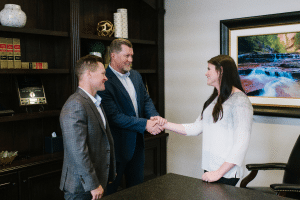
At Good Guys Injury Law, we’re here to help. Our experienced attorneys can guide you through the legal process, ensuring you get the settlement you deserve. We can help you find a nonprofit organization that can support you, but our attorneys can also fight to recover damages on your behalf.
Navigating the aftermath of a brain injury can be challenging. But with the proper support and resources, recovery is possible. Let’s embark on this journey together. Your well-being is our top priority.
Contact us today to schedule a free case consultation. Let us protect your rights while you focus on your medical recovery.
